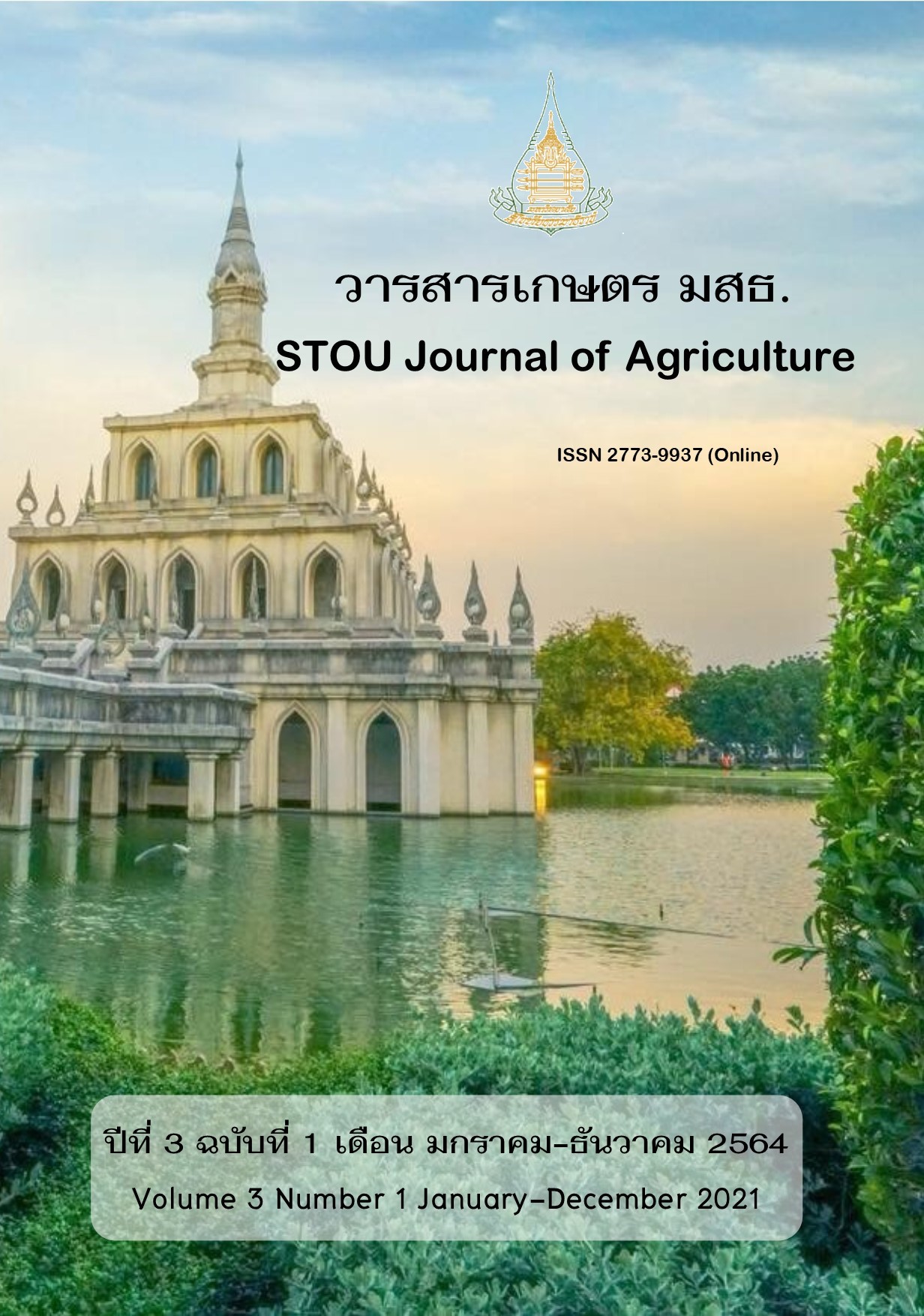การพัฒนาหลักสูตรประกาศนียบัตรบริหารธุรกิจสหกรณ์ สำหรับสหกรณ์ออมทรัพย์และสหกรณ์เครดิตยูเนี่ยน โดยใช้การออกแบบหลักสูตรแบบย้อนกลับ
Main Article Content
บทคัดย่อ
การวิจัยนี้มีวัตถุประสงค์เพื่อศึกษา 1) ความคิดเห็นที่มีต่อคุณลักษณะที่พึงประสงค์ของผู้สำเร็จการศึกษา 2) ความต้องการศึกษาในแต่ละชุดวิชาและรูปแบบการศึกษาที่เปิดสอน และ 3) แนวทางในการพัฒนาหลักสูตรประกาศนียบัตรบริหารธุรกิจสหกรณ์สำหรับสหกรณ์ออมทรัพย์และสหกรณ์เครดิตยูเนี่ยน เป็นการวิจัยเชิงปริมาณ .ใช้วิธีวิจัยเชิงสํารวจ ประชากร คือ บุคลากรของสหกรณ์ออมทรัพย์และสหกรณ์เครดิตยูเนี่ยน โดยไม่ทราบจำนวนที่แน่นอน กำหนดขนาดกลุ่มตัวอย่างใช้สูตรของคอแครน ที่ระดับความคลาดเคลื่อน 0.05 ได้กลุ่มตัวอย่างจำนวน 400 คน โดยการสุ่มตัวอย่างแบบเฉพาะเจาะจงผู้เข้าร่วมอบรมหลักสูตรต่างๆ ที่ชุมนุมสหกรณ์ออมทรัพย์แห่งประเทศไทย จำกัด และชุมนุมสหกรณ์เครดิตยูเนี่ยนแห่งประเทศไทย จำกัด จัดขึ้น เก็บรวบรวมข้อมูลโดยใช้แบบสอบถาม สถิติที่ใช้ในการวิเคราะห์ข้อมูล ได้แก่ ค่าความถี่ ค่าร้อยละ ค่าเฉลี่ย ค่าส่วนเบี่ยงเบนมาตรฐาน และการวิเคราะห์เนื้อหา ผลการศึกษาพบว่า 1) คุณลักษณะที่พึงประสงค์ของผู้จบการศึกษาตามหลักสูตร 7 ด้าน ได้แก่ (1) ด้านการมีความรอบรู้และมีประสบการณ์ โดยรวมอยู่ในระดับมาก สามารถนำความรู้ ทฤษฎี และประสบการณ์ที่ได้จากการศึกษาไปประยุกต์ในการทำงานเพื่อการบริหารจัดการสหกรณ์ได้ (2) ด้านคิดเป็นแก้ปัญหาได้ โดยรวมอยู่ในระดับมากที่สุด โดยมีการใช้ความรู้สู่การปฏิบัติได้ (3) ด้านความรับผิดชอบ โดยรวมอยู่ในระดับมากที่สุด โดยมีความรับผิดชอบต่อองค์กร/สหกรณ์ (4) ด้านมนุษยสัมพันธ์ที่ดี โดยรวมอยู่ในระดับมากที่สุด โดยสามารถทำงานร่วมกับผู้อื่นได้ (5) ด้านความสามารถในการสื่อสารและการใช้เทคโนโลยีอย่างเหมาะสม โดยรวมอยู่ในระดับมาก โดยมีทักษะในการสื่อสารที่ดี (6) ด้านทักษะการศึกษาทางไกลและสามารถศึกษาค้นคว้าได้ด้วยตนเอง โดยรวมอยู่ในระดับมากที่สุด โดยมีความมุ่งมั่น ขยันหมั่นเพียรในการศึกษา และ (7) ด้านการมีคุณธรรมจริยธรรม โดยรวมอยู่ในระดับมากที่สุด คือ มีความซื่อสัตย์สุจริต 2) ความต้องการศึกษาในแต่ละชุดวิชา ชุดวิชาที่มีผู้สนใจเรียนเป็นลำดับแรกคือ ชุดวิชาความรู้ทั่วไปเกี่ยวกับการสหกรณ์ ส่วนชุดวิชาที่มีจำนวนผู้สนใจเรียนมากที่สุดคือ ชุดวิชาการจัดการและการดำเนินงานสหกรณ์ โดยใช้รูปแบบกิจกรรมร่วมเรียนรู้ โดยการอ่านเอกสารการสอน กิจกรรมเสริมการเรียน การสอบกลางภาค และการสอบปลายภาค และ 3) แนวทางในการพัฒนาหลักสูตรโดยสถาบันการศึกษา/หน่วยงานที่ควรจัดการเรียนการสอน คือ มหาวิทยาลัยสุโขทัยธรรมาธิราช ในเนื้อหาที่เกี่ยวข้องกับการบริหารจัดการ การบริหารธุรกิจสหกรณ์ ใช้วิธีการศึกษาผ่านการอบรมทางไกลผ่านระบบออนไลน์ รายการโทรทัศน์ โดยมีผู้สอนเป็นผู้ทรงคุณวุฒิ ผู้เชี่ยวชาญที่มีประสบการณ์ในการบริหารงานสหกรณ์ ผู้เรียนส่วนใหญ่ คือ เจ้าหน้าที่สหกรณ์ และควรมีการเทียบโอนหลักสูตรได้
Article Details
บทความที่ได้รับการตีพิมพ์เป็นลิขสิทธฺ์ของวารสารเกษตร มสธ.
ข้อความที่ปรากฎใน
เอกสารอ้างอิง
วิลาวัลย์ ศิลปศร, ส่งเสริม หอมกลิ่น, วรชัย สิงหฤกษ์, ศิริลักษณ์ นามวงศ์ และสุรเดช อธิคม. (2560). การพัฒนาชุดฝึกอบรมทางไกล เรื่อง การพัฒนาทรัพยากรมนุษย์ สำหรับฝ่ายจัดการของสหกรณ์การเกษตรในเขตภาคกลาง. การประชุมเสนอผลงานวิจัยระดับชาติ มหาวิทยาลัยสุโขทัยธรรมาธิราช ครั้งที่ 7, วันที่ 24 พฤศจิกายน 2560 ณ อาคารเฉลิมพระเกียรติ 80 พรรษา 5 ธันวาคม 2550 มหาวิทยาลัยสุโขทัยธรรมาธิราช


